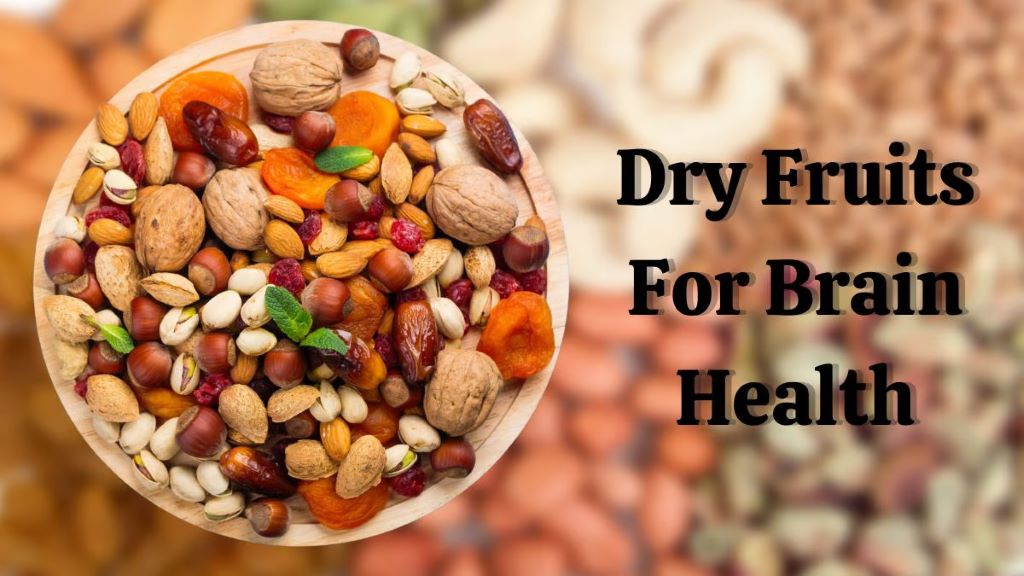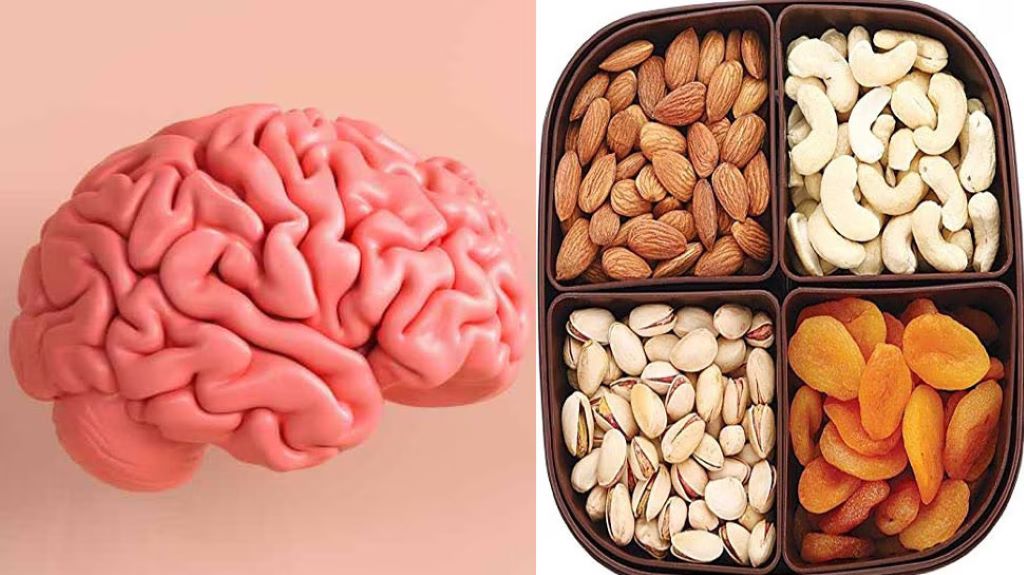
23 Dec Which Dry Fruit is Best for Brain?
In the pursuit of maintaining optimal brain health, incorporating the right nutrients into your diet is paramount. One category of foods that often stands out in this regard is dry fruits. Packed with essential vitamins, minerals, and antioxidants, certain dry fruits can be particularly beneficial for brain function. Let’s delve into the world of dried fruits and explore which dry fruit is best for brain health.
Almonds: A Powerhouse of Nutrients

Almonds, often referred to as nature’s powerhouse, are loaded with nutrients beneficial for brain health. Rich in vitamin E, an antioxidant that helps protect the brain from oxidative stress, almonds also contain magnesium, which plays a crucial role in supporting cognitive function. Additionally, almonds provide healthy fats that are essential for brain development and function.
Walnuts: Brain-Shaped Nutrient Boosters
Walnuts bear a striking resemblance to the human brain, and interestingly, they are excellent for brain health. Packed with omega-3 fatty acids, walnuts contribute to improved cognitive function. These fatty acids are integral to brain structure and play a vital role in maintaining healthy brain cells. Including walnuts in your diet may help enhance memory and cognitive performance.
Blueberries: Tiny Yet Mighty Brain Boosters
While not technically a dried fruit, blueberries deserve a mention due to their exceptional brain-boosting properties. When dried, they become concentrated with nutrients. Blueberries are rich in antioxidants, particularly anthocyanins, which have been linked to improved cognitive function. These tiny fruits may help delay brain aging and protect against oxidative stress.
Raisins: Natural Energy for the Brain
Raisins, derived from dried grapes, are not only a convenient snack but also a source of natural sugars that provide a quick energy boost to the brain. They contain glucose, a vital fuel for the brain, aiding in concentration and cognitive function. Additionally, raisins are packed with iron, supporting oxygen transport to the brain, which is crucial for optimal brain performance.
Dates: Nature’s Sweetener with Brain Benefits
Dates, a natural sweetener, are rich in nutrients that support brain health. They contain vitamins like B6, which plays a role in neurotransmitter synthesis, contributing to a well-functioning brain. The natural sugars in dates provide a quick energy boost, making them a healthy alternative to processed sweets.
Prunes: Supporting Cognitive Function
Prunes, dried plums, are known for their digestive benefits, but they also offer advantages for brain health. Packed with antioxidants, prunes help combat oxidative stress in the brain. They are also a good source of vitamin K, which is essential for brain health, aiding in the synthesis of sphingolipids, a type of fat crucial for brain structure.
Cashews: Nutrient-Rich Brain Snack
Cashews are a scrumptious and incredibly nutritious nut that not only make for a perfect snack but also offer numerous health benefits, particularly for the brain. They are a great source of minerals such as zinc that are essential for maintaining optimal cognitive function. Zinc is known to play a crucial role in regulating communication between the brain cells, which in turn helps in improving memory and overall brain function.
Additionally, cashews are rich in magnesium, a mineral that has been found to contribute to improved learning and memory. Magnesium is also known to play a vital role in regulating brain activity and supporting brain health. So, if you are looking for a tasty and healthy snack that can benefit your brain, cashews are definitely worth considering!
A Nutrient-Rich Symphony for the Brain
Incorporating a variety of dried fruits into your diet can create a nutrient-rich symphony that supports overall brain health. From almonds and walnuts to blueberries and raisins, each contributes unique benefits, providing essential vitamins, minerals, and antioxidants. Remember, a balanced and diverse diet is key to nourishing your brain and optimizing cognitive function.
FAQs
- Can I eat dried fruits every day for brain health?
Yes, incorporating a variety of dried fruits into your daily diet can contribute to overall brain health. However, moderation is key, as dried fruits can be calorie-dense.
- Are there any dried fruits to avoid for brain health?
While most dried fruits offer benefits, it’s advisable to choose those without added sugars or preservatives. Excessive consumption of sweetened dried fruits may have adverse effects on health.
- Can dried fruits help prevent age-related cognitive decline?
Certain dried fruits, such as blueberries and walnuts, are rich in antioxidants and omega-3 fatty acids, which may contribute to preventing age-related cognitive decline.
- How should I incorporate dried fruits into my diet for maximum brain benefits?
You can enjoy dried fruits as snacks, add them to cereals, yogurt, or use them in baking. Be mindful of portion sizes to maintain a balanced diet.
- Are there any risks associated with eating too many dried fruits?
Consuming large quantities of dried fruits may lead to an excess intake of calories and sugars. It’s essential to maintain a balanced diet and monitor portion sizes to avoid overconsumption.
In Summary
Dried fruits offer a delectable and nutritious way to support brain health. From almonds and walnuts to blueberries and dates, each variety brings a unique set of nutrients to the table. Top honey with dry fruits benefits: By incorporating these brain-boosting snacks into your diet in moderation, you can savor the exquisite blend of top-quality honey and nutritious dry fruits, reaping both their delicious flavors and the cognitive benefits they bring to the table.



Sorry, the comment form is closed at this time.